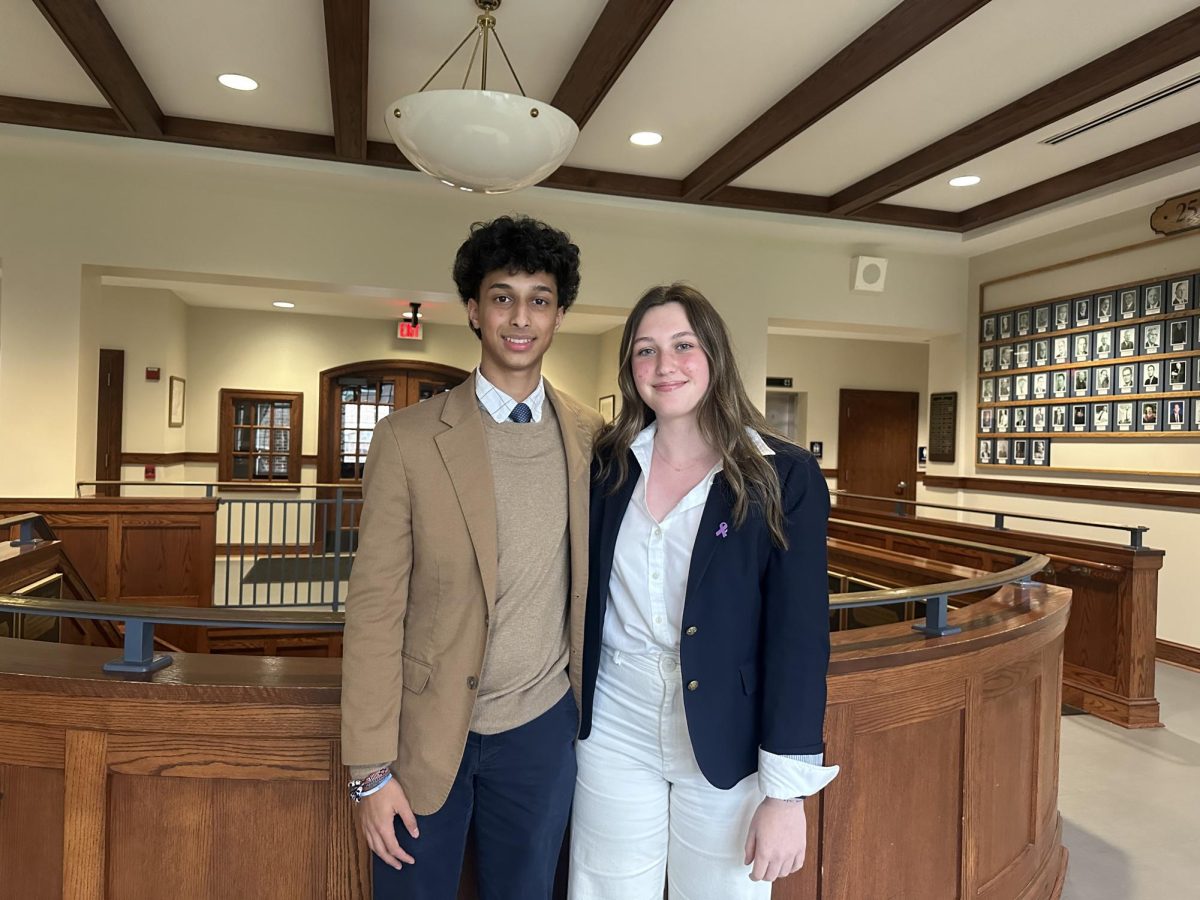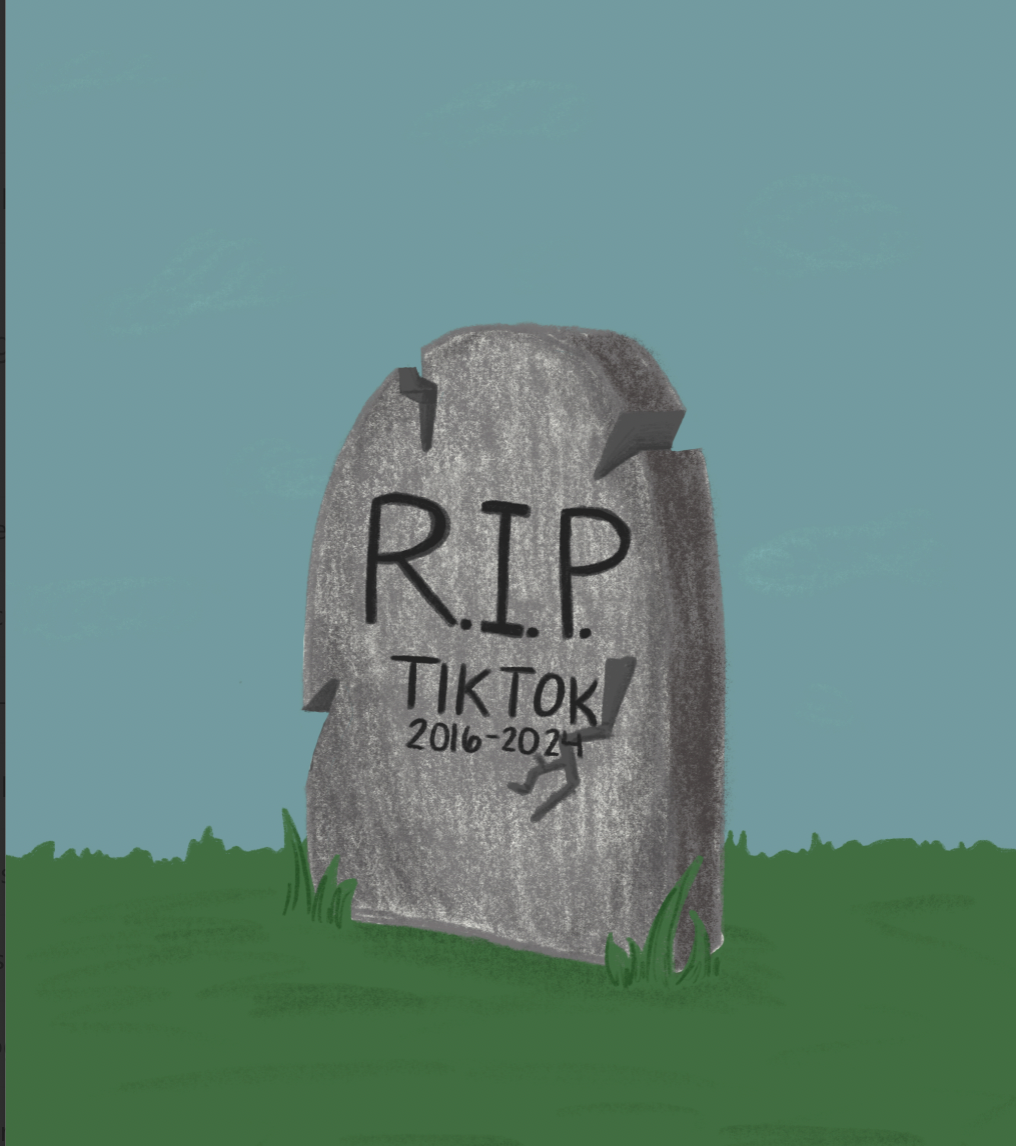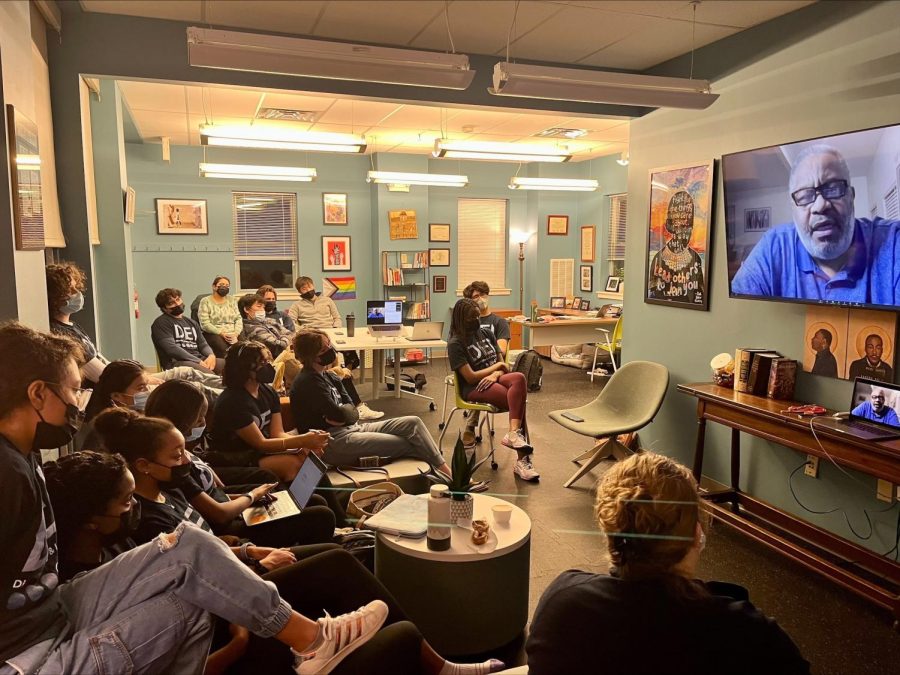Activist and writer Anthony Ray Hinton speaks to the Hill community about his time on death row
Members of Hill’s DEI gather in the Warner Center to watch Anthony Ray Hinton’s livestream on Zoom. Photo by MoniYah Person-Henderson ’23.
Anthony Ray Hinton, an American activist and writer who was wrongfully convicted and put on death row for 30 years before being exonerated, spoke to the Hill community on Jan. 20 about his story.
This experience did not just touch students’ hearts but also their families’. Maggie Classon, a 5th form day student, watched the livestream with her mother at home. “Mr. Hinton was an excellent speaker and inspired me to learn more about the death penalty and what I can do, as a member of my community, to help prevent further injustice,” Classon said. “It inspired my mom to want to read his book as well!”
Sela Muto ’23, also a day student, shared her experience watching Hinton on her family’s TV. “I started watching the webinar on our family room TV during dinner, and my parents paused what they were doing to sit down and watch with me. They thought Mr. Hinton’s story was compelling, and my mom is looking forward to reading my copy of ‘The Sun Does Shine.’”
Hinton began the webinar by stating Dr. Martin Luther King’s quote, “We’ve got difficult days ahead,” referencing that he had many hard days ahead of him. A cop told him he would make sure he would be found guilty. Because he was Black with an all-white jury, someone white convicted him, a white judge, and a white prosecutor, the sentence, the cop said, spelled “conviction, conviction, conviction, conviction, conviction.” Being placed in a cell he considered “smaller than your bathroom.” was no easy task, but Hinton allowed his imagination to take him places he could only dream of. Hinton reenacted his occurrences such as drinking tea with the Queen, marrying Halle Berry, and divorcing her for Sandra Bullock. Allowing him to escape his tormenting reality.
Bryan Stevenson, a young, Black lawyer who assisted those on death row, was soon introduced to Hinton. “I knew for a fact God had sent me his No. 1 lawyer,” Hinton recalled. He suggested that he had a southern white male speak on his behalf and told Stevenson to search until he found one. While choked up with tears, Hinton said he did not want to believe that they would not listen to anyone else because of their skin color, but he knew it to be true.
The court decided against re-examining the bullets, which placed him on death row for another sixteen years. During those sixteen years, he received the unfortunate news that his mother passed. His mother was the one person that he wanted to live for; once he heard the news of his mother’s passing, he told them he did not care if they executed him at that very moment. He then could imagine his mother telling him to continue fighting for justice and not lie there and give up.
Hinton has been free for six years, and he speaks out against the death penalty today. Although no one apologized to him, Hinton taught the audience about forgiveness: “I forgave those men because my faith tells me I have to forgive in order to be forgiven by God.” He closed by asking the audience, “What would you do if you were charged with a crime you did not commit?”
During Q&As, Amanda Hudak ’24 asked if he continued to live in the South after being released from prison. Hinton explained that he stayed in Alabama to bring awareness of abolishing the death penalty. He feels as though he must be here to bring the change.
Nimala Sivakumar ’23 asked Hinton how he managed to stay strong in his faith and forgive those who did him wrong. He said that his faith taught him to forgive and continue because he knew he would be judged.
Earlier this week, students watched the movie “Just Mercy,” where Anthony Ray Hinton was depicted by the character Ray. Viewers of his discussion learned that Hinton is the last survivor of the three men on death row in the movie.
Hinton encouraged students to learn more about the death penalty and to help to abolish it. More information about this can be found by visiting EJI’s website, a non-profit organization based in Montgomery, Ala., that helps inmates like he once was.
Both students and faculty alike appreciated Hinton’s virtual visit. As MLK week winds down, students can look forward to the Writing for Social Change Workshop run by Dr. Catriona Miller on Jan. 21 at 8 p.m.




























Monica D Henderson • Jan 21, 2022 at 1:03 pm
What an amazing true life story about Mr Hinton spending 30 years on death row!! Wow ??♀️ I can no imagine what he went through!!! Great article MoniYah ??????